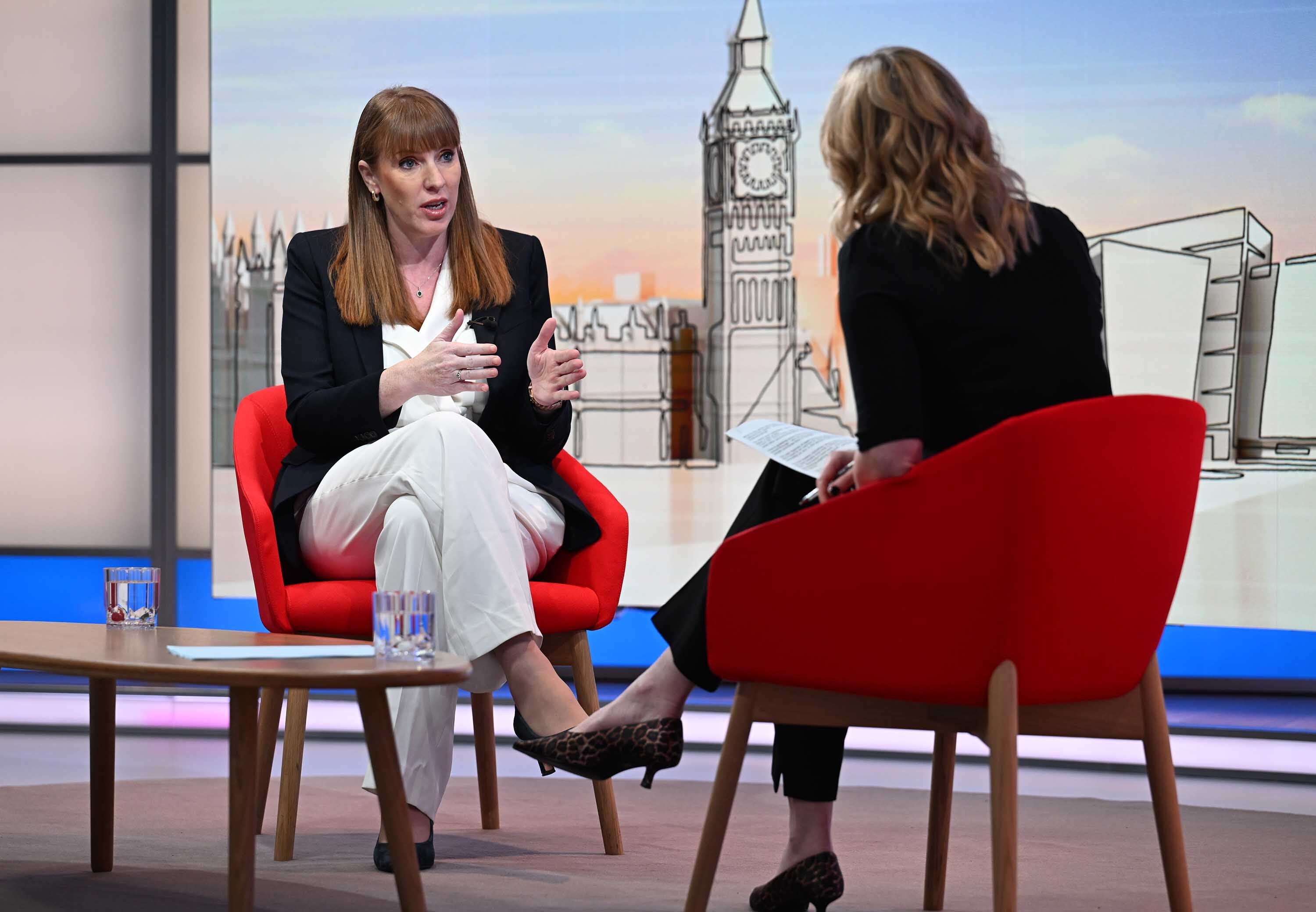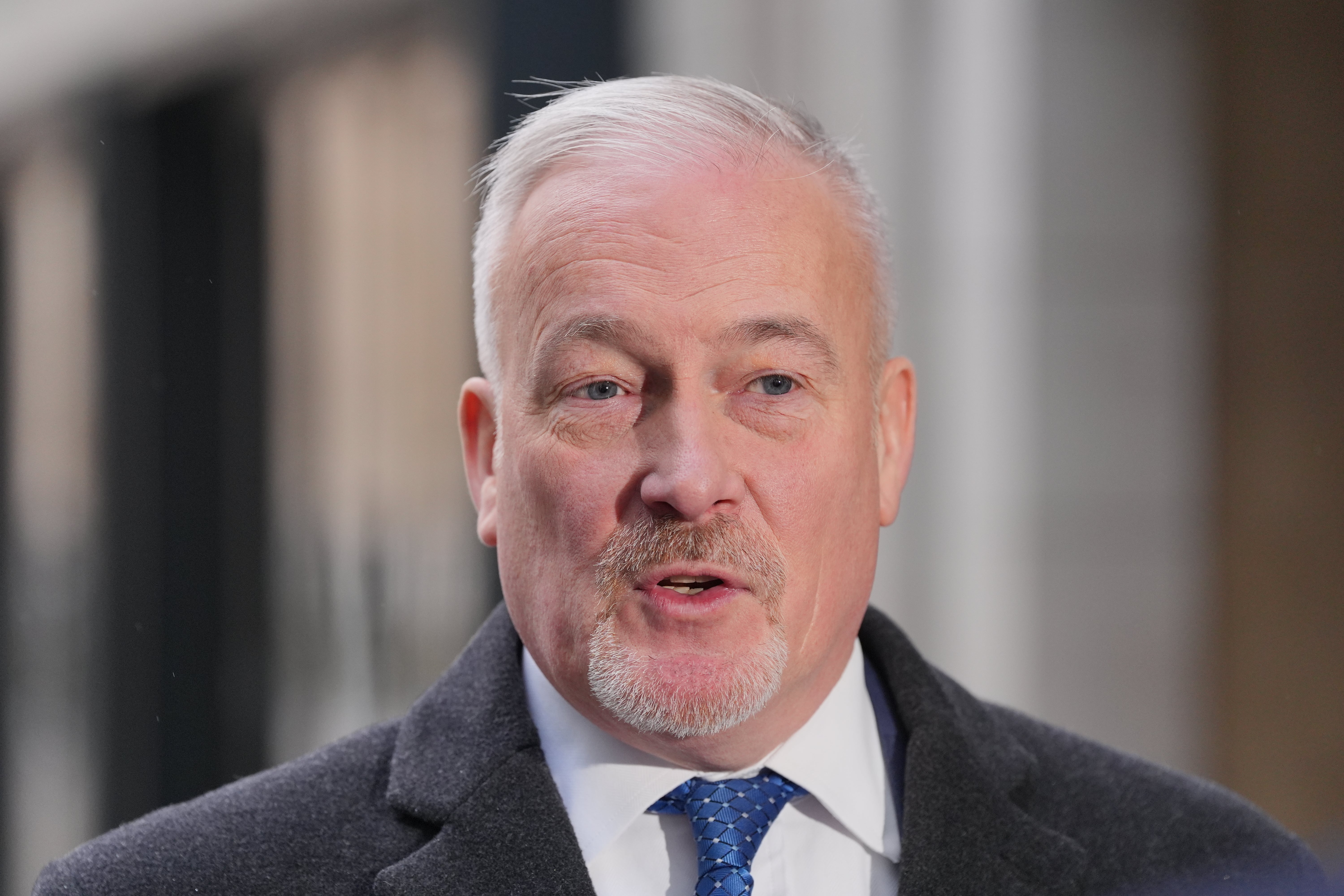Angela Rayner denies her housebuilding plan will undermine local democracy: ‘I don’t like failure’
Angela Rayner warned ‘I don’t like failure’ as she plans to tear up the powers of councils to block developments and pushes for 1.5 million new homes to be built
Your support helps us to tell the story
From reproductive rights to climate change to Big Tech, The Independent is on the ground when the story is developing. Whether it's investigating the financials of Elon Musk's pro-Trump PAC or producing our latest documentary, 'The A Word', which shines a light on the American women fighting for reproductive rights, we know how important it is to parse out the facts from the messaging.
At such a critical moment in US history, we need reporters on the ground. Your donation allows us to keep sending journalists to speak to both sides of the story.
The Independent is trusted by Americans across the entire political spectrum. And unlike many other quality news outlets, we choose not to lock Americans out of our reporting and analysis with paywalls. We believe quality journalism should be available to everyone, paid for by those who can afford it.
Your support makes all the difference.Angela Rayner has denied that she is damaging local democracy after it was revealed she plans to force large developments on communities and bypass council planning committees.
The deputy prime minister was laying out how she plans to get 1.5 million homes built in the UK before the next election.
Speaking to Sky News’s Sir Trevor Phillips she admitted that it would require a rate of building not seen since the 1950s for a target last achieved in 1972.
But she said: “I don’t like failure.”

The 1.5 million new homes was one of the six milestones unveiled in a major speech by Sir Keir Starmer last week.
However, to get to that goal, Labour plans to remove local barriers to developments including council planning committees – leading to questions over whether she is further undermining local democracy in England.
Conservative shadow Treasury minister Richard Fuller argued that local people will be ignored under Labour's plans.
But asked if the plans will take powers away from local councils, Ms Rayner told the BBC's Sunday With Laura Kuenssberg: “I don’t accept that, because we’re saying they have to have a local plan, local democracy, and we’re saying the national planning policy framework, national democracy, were elected to build the 1.5 million homes, so therefore we’ve bolted in the consultation.
“What we’ve seen is, because we haven’t had these compulsory plans locally, is speculative development where green belt land has been developed on because we haven’t had the local plan that delivers for local people.
“We’ve told councils, they’ve got to have those plans. If developers follow the framework, the national framework which protects environments, looks at a number of different elements and also follows the local plan, they shouldn’t be stuck in the system for years.”

In a suggestion that she was being hypocritical, Ms Kuenssberg produced pictures of Ms Rayner leading local protests against a major development herself.
But the deputy prime minister insisted that this was because there was a better alternative site than the field she was trying to protect at the time.
Under Ms Rayner’s proposals, council officials would have a strengthened role in decision-making about planning, while the councillors who sit on the committees will get new mandatory training.
Alongside the reforms, the government is this week expected to confirm sweeping changes to the National Planning Policy Framework – the document which sets out national priorities for building – following a consultation.
Mr Fuller said Labour’s goal of building 1.5 million homes is “a reasonable target”, but added: “If you want to achieve that, you’ve got to bring the people with you, and, unfortunately, Labour seem to be saying that Angela is best and local people can be ignored.”
Elsewhere, Ms Rayner was asked on Sunday Morning With Trevor Phillips whether she is content with many of the new homes she hopes to build going to migrants.
The programme pointed towards the number of people set to arrive in the UK over the same period that the homes are expected to be built, and claimed five out of seven homes could go to migrants.
“Well, that’s not the truth,” Ms Rayner responded.
“There is plenty of housing already, but there’s not enough for the people that desperately need it. So the homes, especially under our affordable homes programme, which is social and affordable housing, will be there for people who desperately need them, local people.”

Join our commenting forum
Join thought-provoking conversations, follow other Independent readers and see their replies
Comments